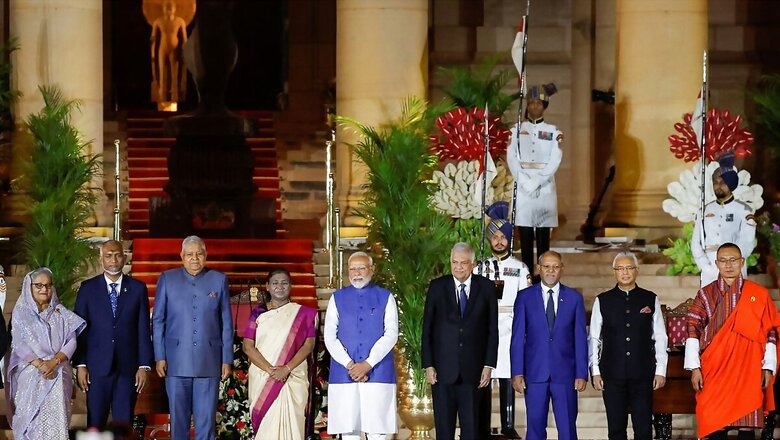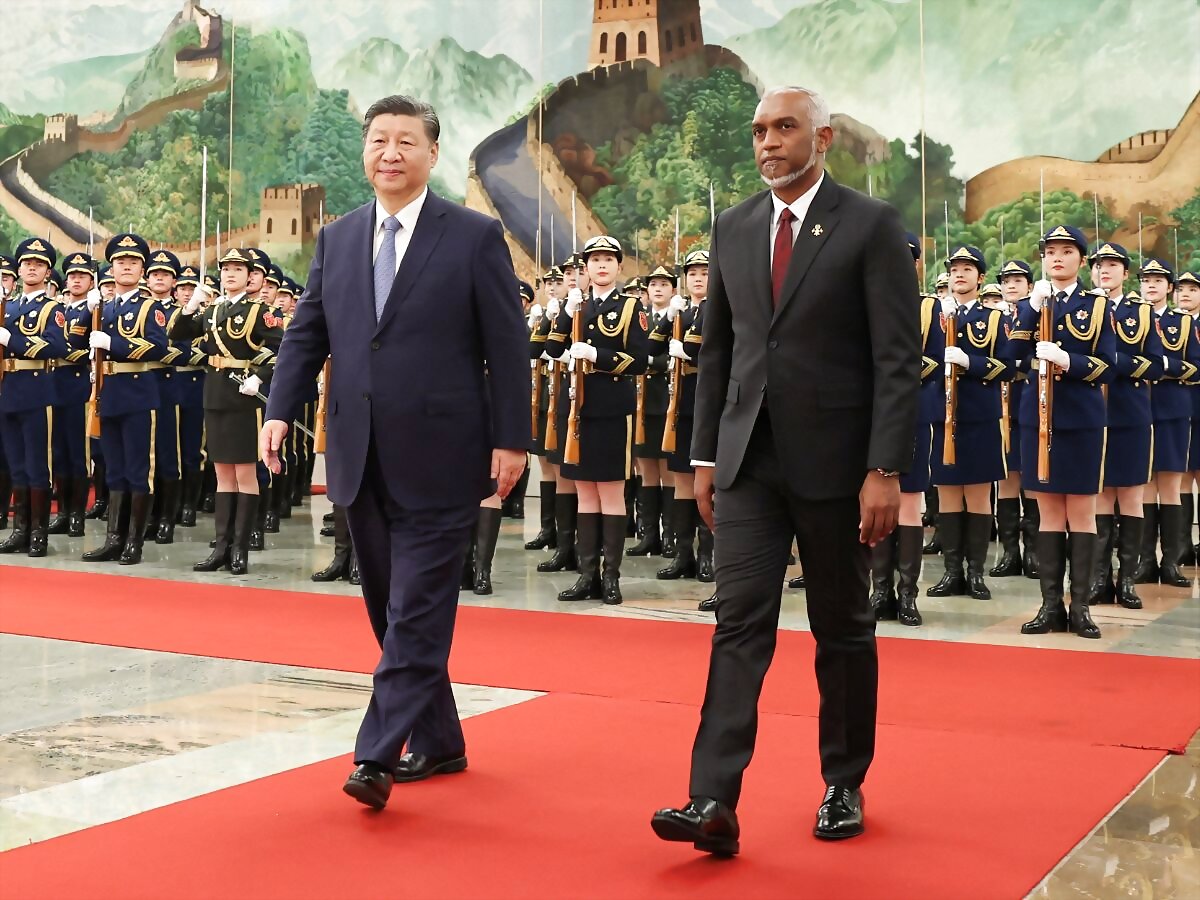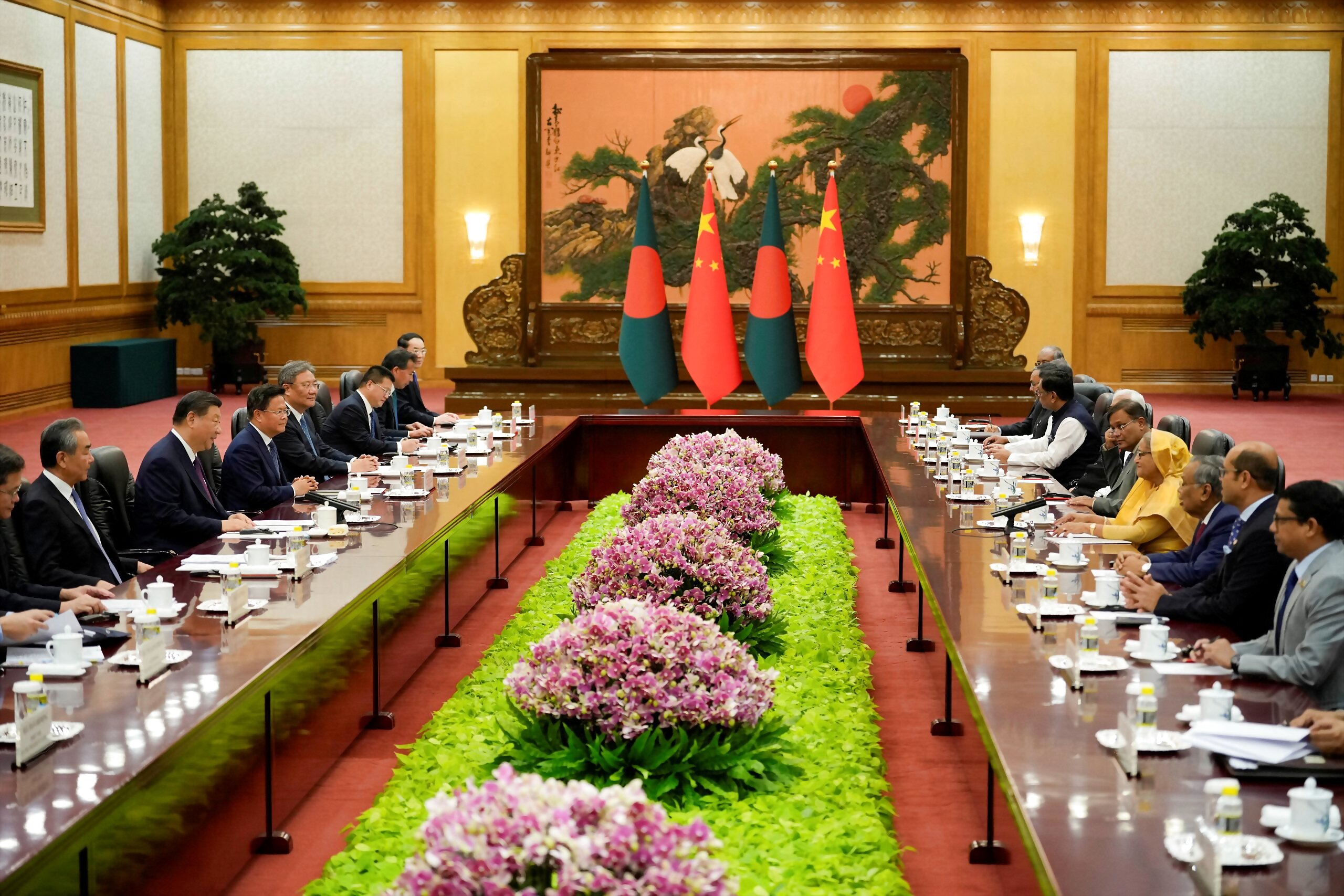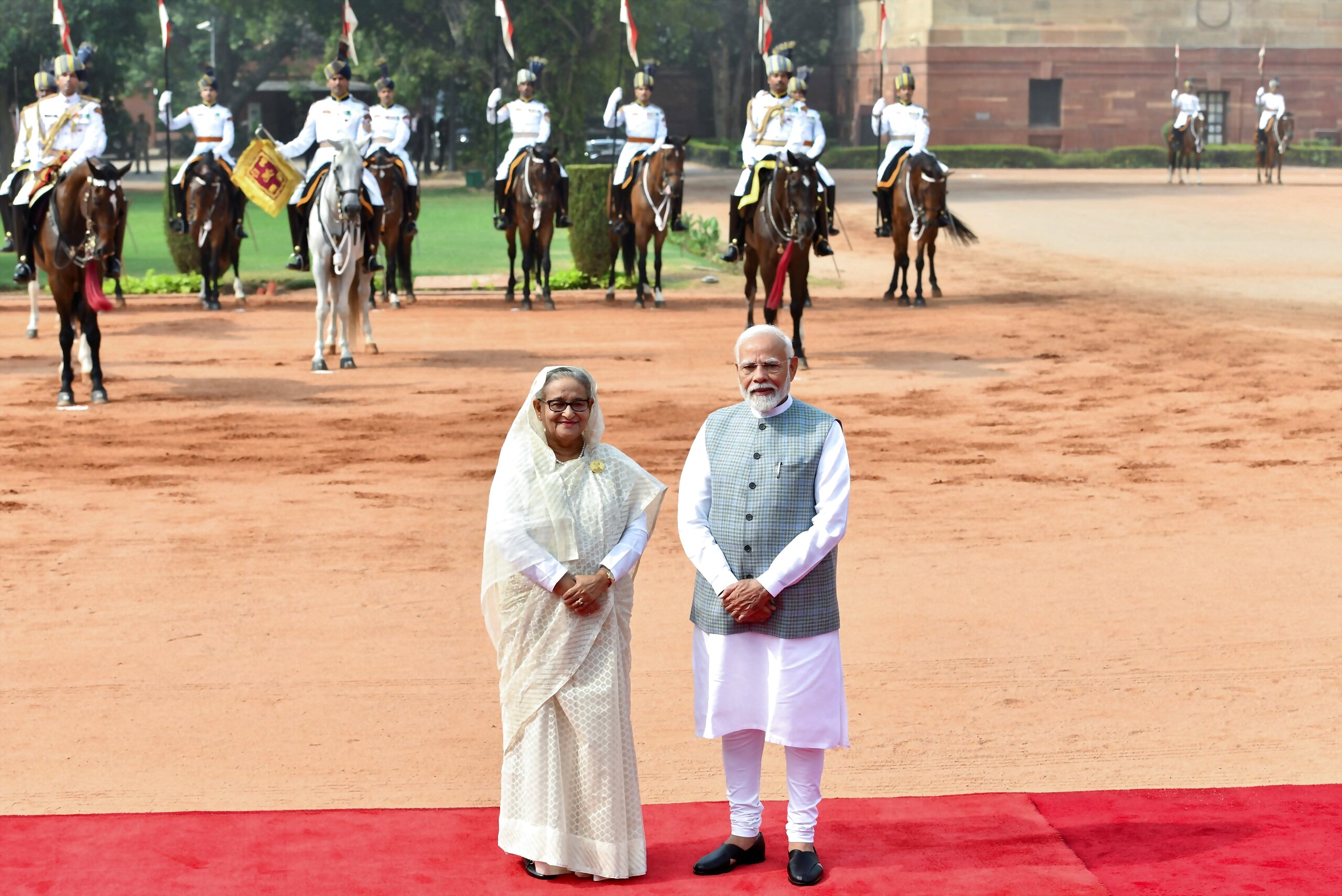
views
The proposed visit of External Affairs Minister (EAM) Jaishankar to the Maldives comes at a fascinating juncture. Relations between the island nation and China appear to have reached a point of no progression. Even after nine months of ‘India Out’ campaign led by the Maldivian President, China has failed to push forward its advantage.
Similarly, in Bangladesh, which is suffering through a period of international isolationism led by the West, China has once again floundered, as Bangladesh once again looks towards India with renewed hope and active economic assistance.
THE MALDIVIAN EPISODE
The relationship between India and the Maldives took a noticeable downturn after President Ibrahim Mohamed Solih was succeeded by President Mohamed Muizzu, a pro-Beijing leader, in late 2023. Muizzu’s actions signaled a clear shift in the Maldives’ foreign policy, moving away from its traditional close ties with India. His election victory was centered around the ‘India Out’ campaign which sought to remove “88” Indian soldiers in the island nation that were positioned to maintain and operate three reconnaissance and rescue aircraft, donated by Delhi years ago.
Another indication of this change was Muizzu’s decision to make China the destination for his first official foreign visit as president, breaking with the long-standing tradition of Maldivian presidents making India their first port of call. This symbolic gesture sent a strong message about Muizzu’s intentions.

During the visit, China and the Maldives inked a wide-ranging set of agreements covering areas such as tourism, disaster preparedness, and the blue economy. The agreements also aimed to accelerate projects under China’s Belt and Road Initiative, including a social housing project, fisheries processing facilities and road improvements in the capital. Muizzu also sought increased Chinese collaboration in e-commerce, urban development and airport expansion.
Further fueling concerns, Maldivian MPs began making public statements critical of Indian Prime Minister Narendra Modi, using language that was derogatory. Adding to the tension, the Maldives allowed a Chinese surveillance vessel to dock at its port, despite strong objections from India. This move raised serious security concerns for India, given the vessel’s capabilities and the strategic location of the Maldives.
After repeated objections by India, Sri Lanka had announced earlier this year a one-year moratorium on such visits by research/ survey ships that can accumulate data for both scientific and military purposes.
However, China’s efforts to capitalise on this apparent rift with India seem to have faltered. The Maldives’ economy, heavily reliant on tourism, suffered a significant blow as Indian citizens, angered by the perceived anti-India stance, began boycotting the island nation. This economic pressure appears to have played a role in prompting a change in course.
The Maldives has seen a significant drop in Indian tourists this year, a trend that coincides with the strained relations between the two countries. Tourist numbers from India, which had been the top source market for the Maldives since the pandemic, fell by 38% in the first quarter of 2024 compared to the same period last year. This decline follows the ‘India Out’ campaign led by Maldivian President Mohamed Muizzu and a subsequent call for a boycott of the Maldives by Indian citizens.
The Maldives found itself in a precarious position. While China had initially seemed eager to provide financial assistance, the terms often came with strings attached, leaving countries like Sri Lanka burdened with debt and forced to cede control of strategic assets. The example of the Hambantota port, now under Chinese control for 99 years, served as a cautionary tale for the Maldives.
Moreover, Maldives is grappling with a significant debt burden, with a large portion of its loans coming from China, approximately $1.3 billion. Chinese projects have left the Maldives debt-laden. The IMF has warned of the Maldives’ large current account deficit and elevated public debt levels. Facing these financial challenges, the Muizzu government sought to restructure its loans from China, which initially expressed reluctance. While China has reportedly agreed to defer loan repayments for five years, concerns remain about the nature of this restructuring and whether it involves new soft loans.
This situation has drawn comparisons to Sri Lanka, which faced a severe debt crisis and ultimately received assistance from India after China declined to restructure its loans totalling $4 billion. The Maldives is facing a critical juncture, with a substantial amount of Chinese loans due for repayment in 2026. India, on the other hand, offered to defer its loans to the island nation.
Recognising the potential pitfalls of over-reliance on China, the Maldives began to re-evaluate its relationship with India. India, with its historical ties, geographical proximity, and more favorable lending practices, emerged as a more attractive partner.
Recently, the Maldives has signaled a desire to mend ties. This shift suggests that the initial momentum China seemed to gain has dissipated, and India is once again being welcomed back into the fold after nine months of the ‘India Out’ campaign. From announcing that Dornier aircraft (gifted by India) will now be used for medical evacuation to having roadshows titled ‘Welcome India’ to woo back Indian tourists, there has been a shift in its entire narrative.
THE BANGLADESHI ANGST
The relationship between India, China, and Bangladesh is complex in its history, economics, and geopolitics. While India and Bangladesh share a long and intertwined history, marked by cultural ties and a shared struggle for independence, China has been steadily increasing its presence in the region, seeking to expand its influence.
Bangladesh, strategically located between India and Southeast Asia, has been walking a tightrope, attempting to balance its relationships with both giants. While Dhaka has traditionally leaned towards India, recognizing the deep historical and cultural connections, it has also been pragmatic in seeking economic opportunities from China.
This balancing act was evident in a statement made by a Bangladeshi minister in 2023, who described India as a “political friend” and China as a “friend for attaining development”. This subtle distinction highlighted Bangladesh’s desire to leverage China’s economic clout, while maintaining its close political ties with India.
The discrepancy between the initially promised $5 billion loan and the paltry $100 million actually offered during Hasina’s visit speaks volumes. It suggests a lack of genuine commitment from China and a failure to understand Bangladesh’s pressing economic needs.
Furthermore, the brevity of Hasina’s meeting with Xi Jinping, the absence of a call from Foreign Minister Wang Yi, and the muted coverage in Chinese state media all point towards a lack of enthusiasm and priority given to Bangladesh. This stands in stark contrast to the warm reception and generous pledges often extended to other countries seeking Chinese investment.

Hasina’s decision to cut her trip short, despite the diplomatic niceties, sends a clear message: Bangladesh is not willing to settle for crumbs. Dhaka is acutely aware of its strategic value and is not afraid to leverage its position to secure the best possible deals.
While Beijing may possess significant economic clout, its ability to translate that power into meaningful partnerships is hampered by a lack of genuine engagement, a tendency towards transactional relationships, and a failure to fully understand the nuances of local politics and priorities.
This is a major setback to China’s hopes of increasing influence in South Asia, especially in Bangladesh which at the moment is extremely vulnerable. The violent protests have led to backlash from the west, especially the US and UK. It also led to it being isolated at international forums, leaving China the perfect opportunity to get closer. However, it certainly has failed to do so, even after a rush of India out movement in Bangladesh led by the opposition parties in Bangladesh after Hasina was reelected.
The good news for India is Sheikh Hasina has been a powerful ally and was one of the key figures in exhausting the flames of the India-out protests in Dhaka, led by the BNP opposition. Hasina, whose monopoly of power and close ties with India triggered the campaign, broke her silence after a BNP leader flung his Kashmiri shawl into a bonfire of Indian products in Dhaka. She declared that if BNP leaders are serious, they should also burn their wives’ saris bought in India! Making light of the movement, she challenged BNP leaders to cook food without Indian onions, garlic, ginger and spices.

China’s attempts to capitalise on perceived rifts between India and its neighbours have ultimately fallen short. Both the Maldives and Bangladesh, while initially appearing receptive to China’s overtures, ultimately reasserted their ties with India. While China possesses economic clout, its approach to diplomacy lacks the nuance and understanding required to build lasting partnerships in South Asia. Despite Xi Jinping’s calls for strengthening ties with “partners” in the Indian ocean, these “partners” have been left feeling short changed with Beijing’s aggressive lending techniques and exploiting potential partners for its gain, rather them helping them in their time of need as a friend and ally.
India, with its historical ties and more favorable engagement, has proven to be a more reliable partner. This highlights a broader trend: China’s struggles to translate economic power into genuine influence in South Asia. While China may have hoped to exploit regional tensions, it has ultimately found itself losing ground to India.


















Comments
0 comment